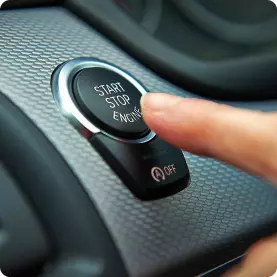California DUI Laws: 2025 DUI Charges Guide
California has some of the strictest DUI laws in the nation, with penalties that increase significantly for repeat offenders and those with high blood alcohol concentration (BAC) levels. The state also pioneered the use of ignition interlock devices (IIDs) for DUI offenders through pilot programs that have now become permanent statewide requirements for many convictions.

Getting Started
If you’ve been arrested for a DUI in California, you’re facing two separate processes: a DMV administrative hearing and criminal court proceedings. This guide provides general information about California’s DUI laws and consequences, but it is not legal advice. Every DUI case has unique circumstances, so it’s important to consult with a qualified attorney who can provide guidance specific to your situation.
Important Note: While this page provides detailed information about California DUI laws, DUI.org does not offer legal advice. Laws can change, so consult a qualified DUI attorney for personalized guidance.
Definitions to Know
DUI
Driving Under the Influence is California’s legal term for operating a vehicle while impaired by alcohol or drugs.
SR-22
A California insurance requirement document that provides proof of financial responsibility after a DUI conviction.
IID (Ignition Interlock Device)
Ignition Interlock Device is a breathalyzer installed in your vehicle that prevents it from starting if alcohol is detected on your breath.
California Department of Motor Vehicles (DMV)
The California DMV handles the administrative side of DUI cases, including license suspensions, IID requirements, and SR-22 filings. They’re separate from the court system and have their own hearing process. The DMV can suspend your license even if you’re not convicted in criminal court. You must contact the DMV within 10 days of your arrest to request an administrative hearing to contest your suspension, or your license will automatically be suspended.
Steps to Take After DUI Arrest in California
- Hire an Attorney
A DUI defense attorney can help navigate both the DMV administrative hearing and criminal court proceedings.
- Request a DMV Hearing
You have only 10 days from your arrest to request an administrative hearing with the DMV to contest your license suspension.
- Attend Court Proceedings
Your criminal case will proceed through the court system separately from the DMV process.
- Apply for a Restricted License
If eligible, you may apply for a restricted license that allows limited driving privileges.
- Install an Interlock Device
California law requires IID installation for most DUI convictions.
Explore IIDs - File an SR-22
You’ll need to have your insurance company file an SR-22 form with the DMV.
- Complete DUI Education Program
California requires completion of alcohol and drug education programs after a DUI conviction.
- Pay DUI Fines and Fees
Be prepared to pay substantial court fines and additional fees for license reinstatement.
- Complete Probation
Most DUI convictions result in a probation period where you must comply with court-ordered conditions.
- Avoid Further Violations
Additional DUI offenses within 10 years will result in increasingly severe penalties.
DUI Laws in California
What Are the Legal Driving Alcohol Limits in California?
In California, it’s illegal to drive under the influence of alcohol, drugs, or a combination of both. The law establishes specific blood alcohol concentration (BAC) limits that vary based on age and license type.
| Driver Category | Legal BAC Limit |
| Drivers over 21 | Less than 0.08% |
| Commercial Drivers | Less than 0.04% |
| Drivers under 21 | Less than 0.01% (Zero Tolerance) |
Felony vs Misdemeanor DUI in California
Most first, second, and third DUI offenses in California are charged as misdemeanors. However, a DUI can be elevated to a felony under the following circumstances:
- Fourth or subsequent DUI offense within a 10-year period
- Prior felony DUI conviction on record
- DUI causing injury or death to another person
- DUI with a child under 14 in the vehicle (can be charged as child endangerment)
Under California DUI laws, Felony DUI convictions typically result in state prison sentences of 16 months to 4 years, fines up to $5,000, and a 4-year license revocation, compared to the shorter jail time, lower fines, and shorter license suspensions for misdemeanors.
What Are Drunk Driving Diversion Programs in California?
California offers limited diversion programs for first-time DUI offenders. As of 2021, judges have discretion to grant misdemeanor diversion for certain first-time, non-injury DUI cases under California Penal Code Section 1001.95. If granted diversion, you must complete court-ordered education, treatment, and monitoring requirements. Upon successful completion, the charges may be dismissed.
However, it’s important to note that not all counties implement diversion programs uniformly, and commercial drivers are typically ineligible for diversion programs.
Refusing a Chemical Test Under California DUI Law
California has an implied consent law, meaning that by driving on California roads, you have already consented to chemical testing if arrested for DUI. Refusing a chemical test after a lawful DUI arrest carries significant administrative and criminal consequences.
| Offense | Administrative Penalty | Criminal Enhancement |
| First Refusal | 1-year license suspension | Additional mandatory 48 hours in jail |
| Second Refusal (within 10 years) | 2-year license suspension | Additional 96 hours in jail |
| Third Refusal (within 10 years) | 3-year license suspension | Additional 10 days in jail |
Additionally, test refusal eliminates the possibility of reduced charges or penalties that might be available with a borderline BAC test result.
DUI Penalties & Consequences
Penalties for DUI Offenses in California
California imposes progressively harsher penalties for subsequent DUI convictions within a 10-year period.
First DUI
Jail Time: 48 hours to 6 months
Fines: $390-$1,000
License Suspension: 6 months
DUI Program: 3, 6, or 9 months
IID Requirement: 6 months
Second DUI
Jail Time: 96 hours to 1 year
Fines: $390-$1,000
License Suspension: 2 years
DUI Program: 18 or 30 months
IID Requirement: 1 year
Third DUI
Jail Time: 120 days to 1 year
Fines: $390-$1,000
License Suspension: 3 years
DUI Program: 30 months
IID Requirement: 2 years
Fourth DUI
Jail Time: 16 months, 2, or 3 years (felony)
Fines: $390-$1,000
License Suspension: 4 years
DUI Program: 30 months
IID Requirement: 2 years
Note: Actual costs are much higher than the base fines listed due to penalty assessments and fees, often totaling $5,000-$10,000 for a first offense.
Aggravating Factors That Increase California DUI Penalties
In California, several aggravating factors can significantly increase DUI penalties:
- High BAC: A BAC of 0.15% or higher results in enhanced penalties, including longer DUI programs.
- Excessive Speed: Driving 20+ mph over the speed limit on streets or 30+ mph on highways while DUI adds a consecutive 60 days in jail.
- Child Passengers: Having a minor under 14 in the vehicle adds mandatory jail time and possible additional child endangerment charges.
- Causing Injury or Death: DUI causing injury is a “wobbler” that can be charged as a misdemeanor or felony. DUI causing death can be charged as vehicular manslaughter or second-degree murder (“Watson murder”).
- Refusing Testing: Chemical test refusal adds mandatory jail time and longer license suspensions with no restricted license option.
- Prior Convictions: Each prior DUI conviction within 10 years substantially increases minimum jail time, fines, license suspensions, and required program lengths.
Driving Without a Valid License
Driving with a suspended license due to a DUI is a misdemeanor offense in California that carries serious penalties. If caught, you may face additional jail time (up to 1 year), fines (up to $2,000), probation extension, vehicle impoundment for 30 days, and an extension of your original license suspension. The penalties increase with each subsequent violation.
Additionally, driving without a valid license will likely violate any probation terms from your DUI case, potentially resulting in the imposition of suspended sentences or additional penalties. Insurance rates will also increase significantly, and you may be classified as a “high-risk driver” for years.
License Suspension
Who Determines if You Can Continue Driving After a DUI
In California, both the DMV and the criminal court have authority over your driving privileges after a DUI arrest. The DMV handles administrative license suspensions based on the arrest itself or test refusal, while the courts impose suspensions as part of criminal sentencing. These two processes operate independently, and suspensions can overlap or run consecutively depending on the circumstances.
The administrative suspension begins 30 days after your arrest unless you request a hearing within 10 days. This process is completely separate from any court-ordered suspension that may result from a conviction.
How Long Will Your License Be Suspended?
License suspension periods in California depend on various factors, including prior offenses, whether you refused testing, and the outcome of your DMV hearing and criminal case.
| Offense | Administrative Suspension | Court-Ordered Suspension |
| First DUI | 4 months (can convert to restricted after 30 days) | 6 months |
| Second DUI (within 10 years) | 1 year | 2 years |
| Third DUI (within 10 years) | 1 year | 3 years |
| Fourth DUI (within 10 years) | 1 year | 4 years |
| Chemical Test Refusal (first) | 1 year (no restricted license option) | Additional to standard suspension |
Steps to Reinstate Your License
To reinstate your driver’s license after a DUI suspension in California, you must:
- Complete your full suspension period or become eligible for a restricted license
- Pay a $125 reissuance fee to the DMV
- Provide proof of financial responsibility (SR-22) from your insurance company
- Complete the required DUI program and provide proof of enrollment or completion
- Install an IID if required and provide proof of installation
- Pass a knowledge test at the DMV (may be required for longer suspensions)
Restoring Your Driving Privileges
Eligibility for a Restricted Driver’s License
In California, you may be eligible for a restricted license during your suspension period if:
- This is your first DUI offense
- You submitted to chemical testing when arrested
- You enroll in a DUI program
- You file an SR-22 form
- You install an IID in any vehicle you operate
- You pay all required fees
For second and subsequent offenses, you may become eligible for a restricted license after serving a portion of your suspension (usually 90-180 days), provided you meet additional requirements.
How to Apply for a Restricted Driver’s License
To obtain a restricted driver’s license in California after a DUI:
- Enroll in the required DUI program and obtain proof of enrollment
- Have your insurance company file an SR-22 form with the DMV
- Install an IID in your vehicle and obtain a verification form
- Pay the $125 reissuance fee plus any additional restricted license fees
- Visit a DMV office with your proof of DUI program enrollment, IID installation, and SR-22 filing
- Complete the restricted license application form
California Ignition Interlock Device (IID) Requirements
California law requires interlock devices for most DUI offenses. The length of the IID requirement depends on your offense:
First Offense
6 months
Second Offense
1 year
Third Offense
2 years
Fourth or Subsequent Offense
3 years
The ignition interlock device must be installed in all vehicles you own or operate, with limited exceptions. You’re responsible for all installation and monitoring costs (typically $70-100 for installation and $60-80 monthly for monitoring). The IID device requires you to provide a breath sample before starting your vehicle and random samples while driving.

Selecting the right ignition interlock provider can make a world of difference.
SR-22 Insurance Requirements
After a DUI in California, you must file an SR-22 Certificate of proof of Financial Responsibility through your auto insurance provider. This verifies that you meet California’s minimum liability insurance requirements:
- $15,000 for injury/death to one person
- $30,000 for injury/death to more than one person
- $5,000 for property damage
You must maintain continuous SR-22 coverage for three years following a DUI conviction. If your insurance lapses or is canceled, the DMV will be automatically notified and your license will be suspended again. Expect significant insurance premium increases, often 100-400% higher than standard rates.

Let us help connect you to the right licensed insurance specialist for you.
Substance Abuse Evaluation and Treatment
California requires all DUI offenders to complete an alcohol and drug education program. The length of the program depends on your BAC level and number of prior offenses:
- First offense (BAC under 0.15%): 3-month program (AB 541/30 hours)
- First offense (BAC 0.15-0.19%): 6-month program (AB 762/45 hours)
- First offense (BAC 0.20%+): 9-month program (AB 1353/60 hours)
- Second offense: 18-month program (SB 38/78 hours)
- Third or subsequent offense: 30-month program (SB 1365/102 hours)
These programs include education, group counseling, individual interviews, and ongoing monitoring. Costs range from approximately $500 for the 3-month program to $2,000+ for the 30-month program. All programs are administered by providers certified by the California Department of Health Care Services.

Understand what to expect and how to prepare for a substance abuse evaluation.
FAQs About DUIs in California
How long does a DUI stay on your record in California?
A DUI conviction remains on your California driving record for 10 years and permanently on your criminal record unless expunged.
Can I refuse a breathalyzer in California?
You can refuse preliminary alcohol screening before arrest, but refusing chemical testing after a lawful DUI arrest results in automatic license suspension and additional penalties.
Can I drive for work with a suspended license after a DUI?
Yes, if you qualify for a restricted license, install an IID, and meet other requirements, you may drive to and from work and DUI program activities.
Do I need an attorney for a California DUI?
While not legally required, an experienced DUI attorney can often negotiate better outcomes and navigate the complex administrative and legal processes.
Is a DUI a felony in California?
Most first-time DUIs are misdemeanors, but a DUI becomes a felony if it’s your fourth offense within 10 years, causes injury or death, or occurs after a prior felony DUI.
Sources
- California Vehicle Code § 23152. (n.d.). Retrieved from California Legislative Information. https://leginfo.legislature.ca.gov/faces/codes_displaySection.xhtml?sectionNum=23152&lawCode=VEH
- California Department of Motor Vehicles. (2023). Driving Under the Influence. Retrieved from https://www.dmv.ca.gov/portal/driver-education-and-safety/dmv-safety-guidelines-actions/driving-under-the-influence/
- FindLaw. (2024). California DUI Laws. Retrieved from https://www.findlaw.com/state/california-law/california-dui-laws.html
- National College for DUI Defense. (n.d.). California DUI Laws. Retrieved from https://www.ncdd.com/california-dui-laws
- California Department of Motor Vehicles. (2024.). California Driver Handbook – Alcohol and Drugs. Retrieved from https://www.dmv.ca.gov/portal/handbook/california-driver-handbook/alcohol-and-drugs/
- California Department of Motor Vehicles. (2024). Fast Facts – Ignition Interlock Devices. Retrieved from https://www.dmv.ca.gov/portal/driver-education-and-safety/educational-materials/fast-facts/ignition-interlock-devices-ffdl-31/
- California Department of Motor Vehicles. (2023). Driving Under the Influence – Fast Facts. Retrieved from https://www.dmv.ca.gov/portal/driver-education-and-safety/educational-materials/driving-under-the-influence-ffdl-36/
- California Department of Health Care Services. (n.d.). DUI Programs. Retrieved from https://www.dhcs.ca.gov/individuals/Pages/DUI.aspx
Get support.
What is next? We can help you through the process. Give us a little information and we can support you through the next steps.
All fields are required.